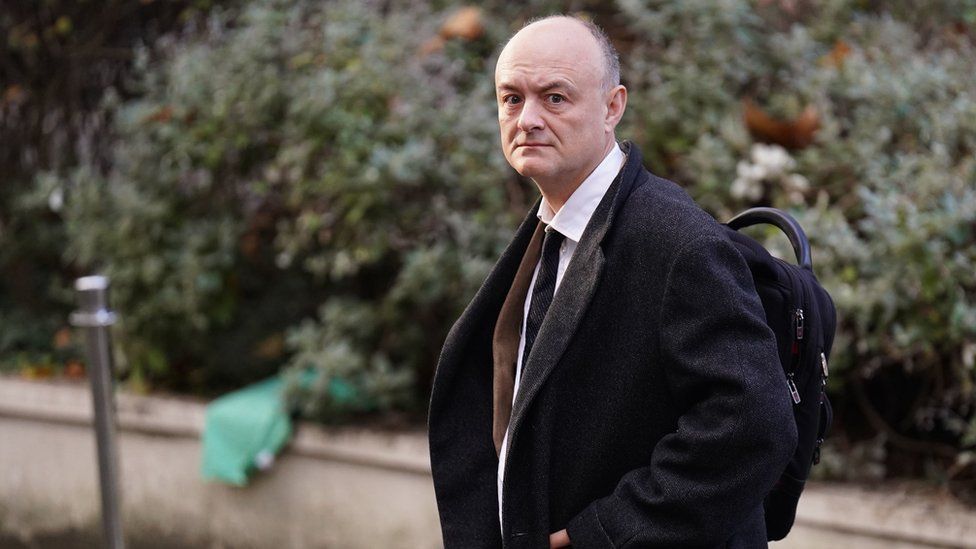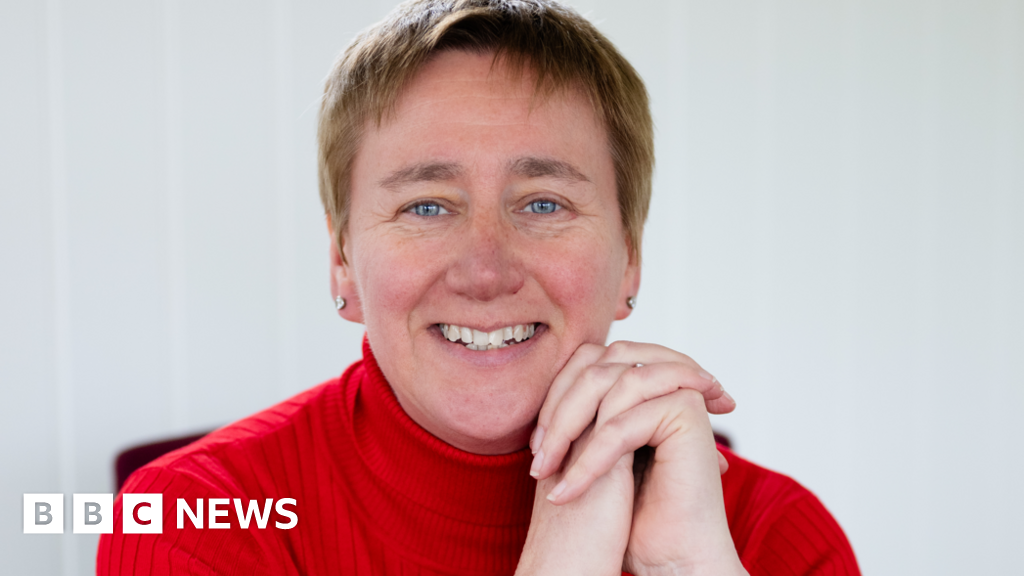 Image source, PA Media
Image source, PA Media
Dominic Cummings gave evidence at this week's hearings
By Nick Eardley
BBC chief political correspondent
Three years ago on Sunday, the government brought in a second lockdown in England. People were told again to stay at home to protect the health service and save lives.
Covid will, for some, feel like a distant memory. For others, it will bring back painful recollections of isolation and lost loved ones.
Part of the Covid Inquiry's job is to find out how key decisions were made.
The evidence we have seen at the hearings this week has been remarkable.
Sitting in the press room at the inquiry in London - there was at times an overwhelming list of claims about what was going on at the heart of government, as we all grappled with the virus.
To recap a few: "Downing Street was in chaos"; "There was no plan for a Coronavirus response", and "It took too long for the first lockdown to be introduced".
Others include: Mr Johnson was "weak and indecisive" and "often changed his mind"; the prime minister apparently questioned shutting down the economy to save people who were going to "die anyway"; and "Health Secretary Matt Hancock said things which turned out to be untrue".
It was claimed the atmosphere in No 10 was 'toxic and sexist'. Dominic Cummings, the PM's most powerful adviser, used the most vulgar language to refer to his colleagues and government ministers.
Dominic Cummings on his 2020 messages about Downing Street's handling of Covid: "My appalling language was obviously my own"
These are claims from key individuals. Some - like Mr Cummings - have made it clear how much they despise Mr Johnson. Others will give evidence before the end of the year and they may well have different recollections.
'The picture isn't pretty'
But we are learning a lot about what Downing Street was like at the time in the eyes of people working there. And the picture isn't pretty.
WhatsApp messages make it clear that the key players were bitterly divided and arguing with itself. Mr Cummings was scathing about some of the people who worked in Whitehall and furious about what was going on behind the scenes. Partly in response, senior civil servants were concerned that the environment was "macho" and "sexist". They were raising fears about a misogynist culture, and concerns that women were being ignored.
That tells us about the culture in the most powerful building in the country. But it also paints a picture of senior advisers who didn't trust each other, didn't agree and sometimes didn't even talk - just as the biggest crisis in decades was unfolding. When the machinery of government needed to be pulling together to respond to Covid - it was perhaps as divided as it has ever been.
What impact did that have?
It's suggested that the macho culture led to overconfidence in the early stages of the pandemic - which senior civil servant Helen MacNamara describes as a "de facto" assumption that "we were going to be great".
A day after Dominic Cummings is challenged about some emails about a colleague in No 10 from 2020, she gives her reaction..
She also argued forcefully that the interests of key groups like women, ethnic minorities and disadvantaged people were being ignored because they weren't represented in high-level discussions.
None of this gives the impression of a government working effectively. But the problems appear to go deeper.
Did the government have a proper plan for responding to the pandemic? We've known for a while that the UK's planning had been based on a flu-like viral outbreak, rather than other illnesses such as Covid.
Different aides have said Mr Hancock insisted there was a plan. But many have also concluded that there wasn't. Ms MacNamara delivered a damning conclusion when she agreed that the former health secretary would often say things which turned out to be untrue. Mr Hancock will have his chance to defend himself against those claims in a few weeks.
The actions of the prime minister were of course crucial too. We've heard multiple key aides claim Mr Johnson was indecisive, took too long to make decisions and often veered between very different positions.
We've seen notes saying the chief scientific adviser, Sir Patrick Vallance, believed Mr Johnson agreed with MPs who thought Covid was nature's way of dealing with older people.
Sir Patrick, whose job it was to advise Johnson on matters of life and death, found him to be "weak and indecisive".
Incredibly, Mr Cummings told the inquiry he didn't think it was worth including the prime minister in discussions about Covid in February 2020 - because he would just get in the way.
For Mr Johnson's critics - this will confirm some of their worst fears; that he was the wrong man for the job. At the very least, it tells us that senior people around him had serious concerns.
Mr Johnson will deliver his defence before Christmas. But we've seen snippets of his witness statement, in which he argues any responsible leader would debate the pros and cons of lockdown. "We simply had no good choices, and it was necessary at all times to weigh up the harms that any choice would cause", he argues.
Stand back from it all a bit.
'The only time we see such unfiltered communications revealed in full'
We've heard some of these stories before. It's not a surprise that Mr Cummings didn't rate senior ministers and civil servants - he isn't shy about saying so. The divisions and tensions in No 10 were widely reported at the time. Many have consistently argued that Mr Johnson was the wrong man at the wrong time.
But the stark picture painted at this week's hearings - of a dysfunctional, divided and chaotic No 10 - is a timely reminder of the events of 2020.
The detailed and contemporaneous communications, foul-mouthed WhatsApp messages, diaries of concerned scientists and scribbled recordings of meetings involving cabinet ministers will bring back memories of those surreal, grim days of crisis - and help us discover a little more about what was going on in Downing Street.
It may be the only time we see such unfiltered communications revealed in full - many in Westminster have turned on the "disappearing messages" function on WhatsApp in recent months.
That doesn't mean there won't be a lot more to come before next year, however, with senior ministers getting set to give their version of events in the coming weeks.
 (1).png)
 1 year ago
16
1 year ago
16













